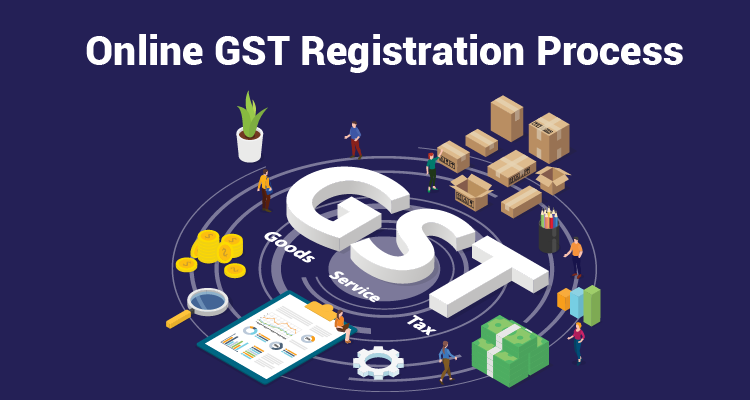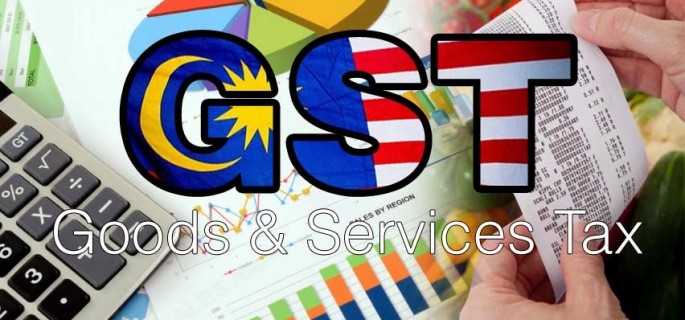CFO Account & Services: Your Relied On Companion for Hassle-Free GST Registration in Singapore
CFO Account & Services: Your Relied On Companion for Hassle-Free GST Registration in Singapore
Blog Article
Navigating the Complexities of GST Registration: A Comprehensive Overview for Entrpreneurs
Navigating the complexities of GST enrollment can be a difficult task for numerous company owner, as it involves a myriad of regulations, guidelines, and refines that must be adhered to. With the ever-evolving landscape of tax obligation legislations, making certain conformity and understanding the intricacies of GST registration is essential for the seamless procedure of any type of service. From figuring out eligibility and gathering the necessary paperwork to enhancing operations for maximum performance, this comprehensive guide aims to give company owner with the expertise and tools required to navigate the complexities of GST enrollment effectively.
Eligibility for GST Enrollment
Company proprietors have to fulfill particular standards to determine their eligibility for GST enrollment. In basic, companies with an annual turn over surpassing a particular limit are required to register for Goods and Provider Tax (GST)
Additionally, services that are signed up under any previous tax obligation program, such as barrel or service tax obligation, are commonly needed to shift to GST registration. Comprehending these criteria is vital for entrepreneur to make certain conformity with the legislation and stay clear of any charges or legal concerns. It is recommended for business owners to talk to tax obligation experts or legal advisors to examine their qualification for GST enrollment properly. By sticking to the necessary requirements, companies can efficiently navigate the intricacies of GST enrollment and run legitimately within the tax framework.
Files Needed for Registration
To finish the GST enrollment procedure, organizations require to gather and send a detailed set of files. The crucial papers required for GST registration generally consist of evidence of organization enrollment or consolidation such as the Certificate of Consolidation, collaboration deed, or any kind of other registration certification. Additionally, businesses have to offer identification and address proof of the promoters or partners, which can be in the form of Aadhar card, PAN card, key, or driver's permit. Financial papers such as bank statements, proof of area of company like rental arrangement or electrical energy expense, and licensed signatory information are additionally necessary for the enrollment procedure.
Moreover, details records associated to the nature of the business, such as a checklist of goods or services provided, HSN codes for products, and SAC codes for services, might be required - Why choose CFO Account & Services for GST registration in Singapore. It is important for businesses to make certain that all files sent are exact, current, and in the prescribed style to prevent any hold-ups or problems in the GST enrollment process
Refine of GST Registration
Having actually set up the requisite documentation, businesses continue to initiate the GST registration process by involving with the online site marked for registration. This online website is the Item and Solutions Tax Network (GSTN) website, which serves as the primary platform for all GST-related activities in India. Upon accessing the portal, businesses are required to submit the GST enrollment kind with exact details regarding their organization tasks, turn over, and other pertinent info.
Once the kind is completed and sent on the portal, the GSTN verifies the details provided by the business. Adhering to successful verification, a GST enrollment certificate is provided to the service entity.
It is necessary for organizations to make sure that the information offered throughout the GST enrollment procedure is precise and as much as day to stay clear of any kind of prospective concerns or hold-ups in acquiring the GST registration certification.
Understanding GST Conformity

Services require to be aware of the numerous GST compliance demands based upon their turn over, nature of products or services, and the states in which they run. It is vital to remain upgraded on any kind of changes in GST laws and guidelines to protect against any type of non-compliance problems.
Non-compliance with GST regulations can lead to hefty fines, fines, and even lawful effects. As a result, organizations must invest time and sources in enlightening themselves and their personnel on GST conformity. Looking for specialist help from tax advisors or specialists can likewise help in navigating the intricacies of GST compliance and making certain that services operate within the legal structure.

Tips for Optimizing Organization Workflow
For enhanced effectiveness and performance in organization operations, critical preparation and structured procedures are vital components. One idea for enhancing business operations is to leverage modern technology successfully.
Another vital facet is focusing reference on jobs based on their significance and deadlines. By developing a clear power structure of tasks and setting practical timelines, services can make sure that critical activities are finished in a timely manner. Fostering a culture of open interaction and cooperation among team participants can lead to boosted efficiency and development.

Conclusion
Finally, navigating the intricacies of GST enrollment needs a clear understanding of eligibility standards, necessary papers, enrollment procedures, and conformity requirements. By sticking to these standards and enhancing business operations, entrepreneur can ensure smooth operations and compliance with the GST laws. It is important for organizations to stay educated and updated on GST policies to avoid any penalties or legal concerns.
The crucial records needed for GST registration usually include evidence of business registration or incorporation such as the Certification of Unification, collaboration deed, or any type of various other registration certification.Having actually assembled the requisite paperwork, organizations continue to start the GST registration process by engaging with the on-line website marked for find more information registration. Upon accessing the portal, services are required to fill out the GST registration type with accurate details regarding their business tasks, turnover, and various other pertinent information.
In order to keep adherence to GST guidelines and prevent penalties, organizations should focus on comprehending GST conformity. By sticking to these standards and enhancing company procedures, business proprietors can make certain smooth procedures and conformity with the GST policies.
Report this page